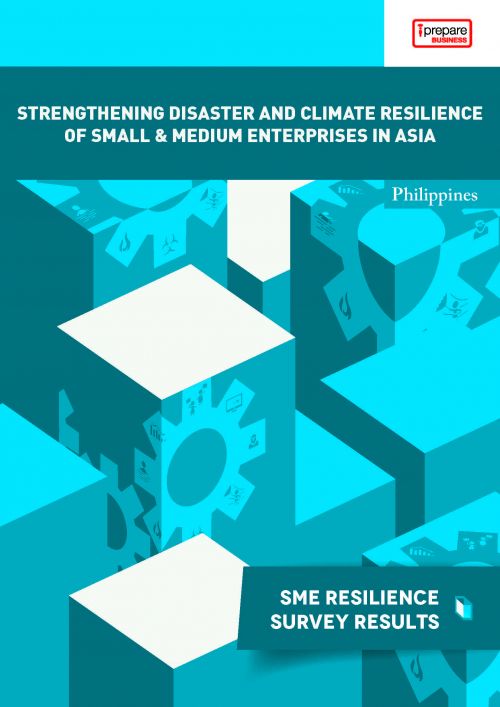Disaster occurrences cause losses and disruption in business operations among small and medium enterprises. The iPrepare Business facility intends to address this through the Strengthening the Disaster Resilience of Small and Medium Enterprises in Asia Project. One of the activities under the project is conducting of a survey among SMEs to understand the state of their disaster resilience, including capacity gaps and needs. Specifically, the survey covered questions risk exposure, experiences from previous disaster, Business Continuity Plan adoption, incentives and training needs. A total of 513 enterprises responded to the survey which was done through email, Survey Monkey, mail and events.
The results of the survey indicate that actual disaster experiences that have impacted their business operation influence the perception of SMEs on the potential occurrences of hazards. Considering this, past disaster experiences can be used in awareness campaigns to promote SME disaster resiliency. The survey findings show the need to raise awareness particularly in Business Continuity Planning (BCP). While there are recent efforts from government to promote BCP, these have to be intensified and expanded to reach wider stakeholders. The possibility of providing support for BCP preparation and adoption must also be explored. This can be in the form of incentives such as tax credits and soft loans, or in the form of training. The results also point to the need for more coordinated initiatives in SME development and disaster risk reduction and management (DRRM). Most of the respondents had no previous DRRM-related training or written disaster preparedness plans. Access to formal risk financing for SMEs must also be enhanced. In terms of support, greater attention to micro enterprises should be considered since they were the respondents reporting the longest period business of disruption, no disaster preparedness plan and no existing formal risk financing mechanisms.
